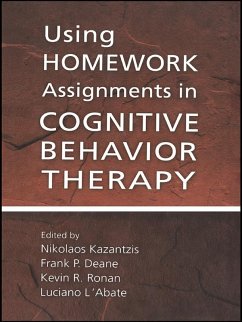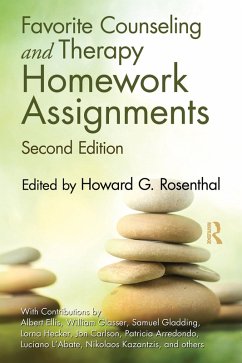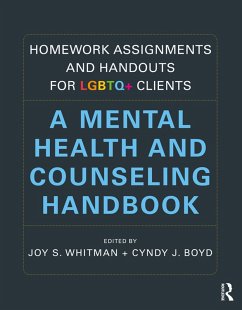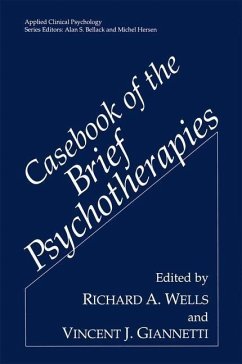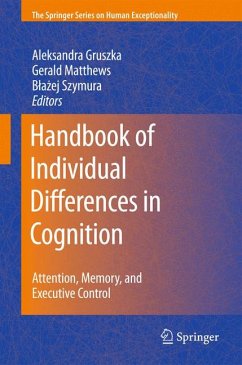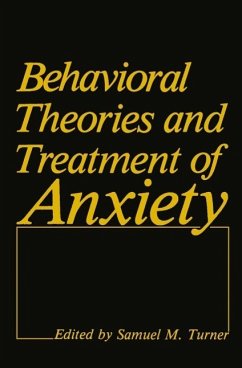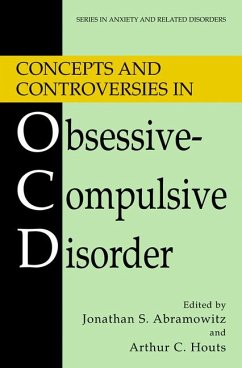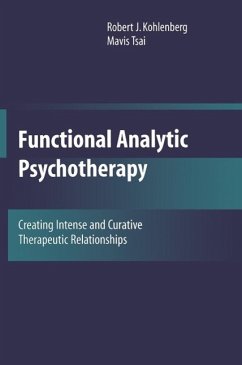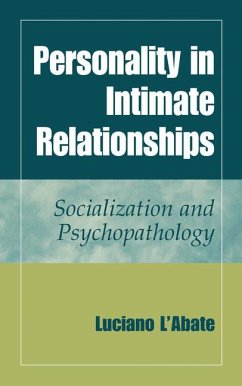
Handbook of Homework Assignments in Psychotherapy (eBook, PDF)
Research, Practice, and Prevention
Redaktion: Kazantzis, Nikolaos; L'Abate, Luciano
Versandkostenfrei!
Sofort per Download lieferbar
80,95 €
inkl. MwSt.
Weitere Ausgaben:

PAYBACK Punkte
40 °P sammeln!
The process of psychotherapy is essentially a means of helping patients to help themselves. As such, psychotherapy is not limited to the relatively brief in-session consultation time with the practitioner. Rather, patients' engagement in therapeutic activities between sessions has become an important part of the therapy process. Such activities, often termed 'homework', are central to ensuring that therapeutic goals are reached.The Handbook of Homework in Psychotherapy is the first resource for the practicing clinician that addresses the role of homework across major therapeutic paradigms and ...
The process of psychotherapy is essentially a means of helping patients to help themselves. As such, psychotherapy is not limited to the relatively brief in-session consultation time with the practitioner. Rather, patients' engagement in therapeutic activities between sessions has become an important part of the therapy process. Such activities, often termed 'homework', are central to ensuring that therapeutic goals are reached.
The Handbook of Homework in Psychotherapy is the first resource for the practicing clinician that addresses the role of homework across major therapeutic paradigms and complex clinical problems. It opens with a series of practice-orientated chapters on the role of homework in different psychotherapies (acceptance and commitment, client-centered, constructivist, cognitive-behavioral, experiential, family, interpersonal, psychodynamic) written by an international team of expert psychotherapy practitioner-researchers. Then, experienced practitioners present strategies, examples, and formulated assignments for use with different populations (couples, families, older adults) and complex problems (chronic depression, chronic pain, eating disorders, obsessions and compulsions, personality disorders, psychosis, sexual dysfunction, substance abuse, traumatic brain injury). The Handbook closes with three chapters by leading psychotherapy theoreticians, researchers, and practitioners that critique the available research evidence for homework, integrate the recommendations for using homework in practice, and also provide directions for homework's role in prevention.
Each chapter presents:
Novice and seasoned psychotherapists from all training backgrounds will find useful ideas in this volume. The Handbook ably complements many current teaching psychotherapy texts in graduate and residency programs by offering real-world expertise in a core feature of therapy. Researchers, too, will find new insights on the value of between- session assignments and future directions for study as our understanding of homework's role in psychotherapy continues to evolve.
The Handbook of Homework in Psychotherapy is the first resource for the practicing clinician that addresses the role of homework across major therapeutic paradigms and complex clinical problems. It opens with a series of practice-orientated chapters on the role of homework in different psychotherapies (acceptance and commitment, client-centered, constructivist, cognitive-behavioral, experiential, family, interpersonal, psychodynamic) written by an international team of expert psychotherapy practitioner-researchers. Then, experienced practitioners present strategies, examples, and formulated assignments for use with different populations (couples, families, older adults) and complex problems (chronic depression, chronic pain, eating disorders, obsessions and compulsions, personality disorders, psychosis, sexual dysfunction, substance abuse, traumatic brain injury). The Handbook closes with three chapters by leading psychotherapy theoreticians, researchers, and practitioners that critique the available research evidence for homework, integrate the recommendations for using homework in practice, and also provide directions for homework's role in prevention.
Each chapter presents:
- A brief overview of the approach
- Review of existing empirical support
- Recommendations for practice
- Illustration of homework's role in practice and prevention through detailed case studies
- Individualized use of homework, rather than a collection of "one-size-fits-all" assignments
<
Novice and seasoned psychotherapists from all training backgrounds will find useful ideas in this volume. The Handbook ably complements many current teaching psychotherapy texts in graduate and residency programs by offering real-world expertise in a core feature of therapy. Researchers, too, will find new insights on the value of between- session assignments and future directions for study as our understanding of homework's role in psychotherapy continues to evolve.
Dieser Download kann aus rechtlichen Gründen nur mit Rechnungsadresse in A, B, BG, CY, CZ, D, DK, EW, E, FIN, F, GR, HR, H, IRL, I, LT, L, LR, M, NL, PL, P, R, S, SLO, SK ausgeliefert werden.



